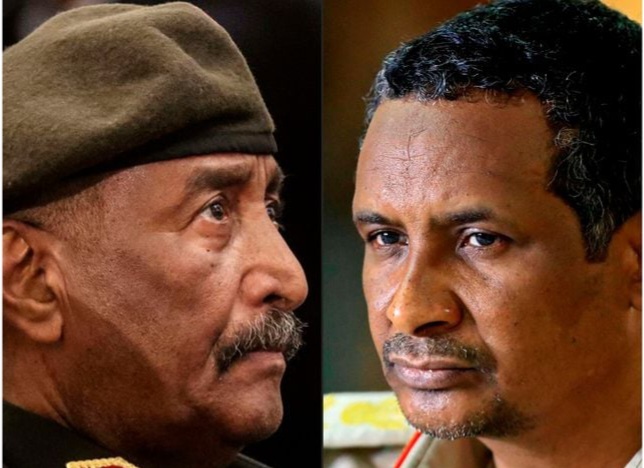By ANTHONY KITIMO
The Intergovernmental Authority on Development (Igad) says it is watching over other potential conflict boiling pots in the region, after Sudan erupted into a massive crisis the bloc is struggling to deal with.
And Permanent Secretaries from the 8-member bloc say they have introduced guidelines for its member states to detect early signs and prevent conflicts, starting from grassroots squabbles.
This week, the bloc said it had completed the distribution of equipment for key agencies to share early warning signs and help officials forestall what could balloon into big crises.
Camlus Omogo, the Director for Conflict Early Warning and Response Mechanism (CEWARN) at Igad, said the equipment will focus on youth, who he said are now vulnerable purveyors of fuel for conflict due to increasing unemployment, as seen in recent violent incidents across the Horn.
“The equipment launched will provide data-based early warning and support early responses to tackle human security challenges in five broad sectors namely governance, environment, economy, social affairs and security,” said Mr Omogo.
He spoke after the Igad Committee of Permanent Secretaries met in Mombasa and agreed early warnings, both physical and online, can help authorities prevent conflict.
The committee which meets bi-annually to appraise the work of CEWARN said this week that member states need to strengthen national conflict prevention and peace building structures that enable countries to detect crisis early and mobilize coordinated action.
“We have adopted strategies to work with active civil societies to push CEWARN agenda and how to support Igad-led Peace Process in South Sudan and how to deploy proactive conflict prevention and peacebuilding efforts in light of upcoming elections in 2024, similarly in Sudan,” said Fatuma Adan, representing Igad Executive Secretary Workneh Gebeyehu.
Speaking during the 17th meeting of CEWARN’s committee, Ms. Adan noted the increase of attacks in different countries more so in Sudan and South Sudan.
“Igad is focusing on different countries especially in the wake of Sudan and top officials have focused on how best to detect and contain any form of conflict,” said deputy Igad executive secretary.
Igad has struggled to cut down the ballooning conflict in Sudan after parties spread their fighting beyond the capital Sudan.
The bloc is still trying to have parties at least meet face to face and commit to a permanent ceasefire.
Yet Igad officials admit conflicts start from smaller pots and focusing on such in other member states can lead to an endless sprouting of violence.
During the meeting in Mombasa, Eritrea was represented by Ambassador Beyene Russom to Kenya after announcing it has rejoined a regional bloc it left 16 years ago.
Asmara quit the Igad in 2007 to protest against the deployment of Ethiopian troops to Somalia to force out Al Shabab fighters who controlled most of southern Somalia then.
Mr Russom expressed his commitment to the process to work towards “peace, stability and regional integration after working 16 years away from the bloc.
This is the second time after 16 years the country is being represented in Igad meetings after June 12, 2023, meeting in Djibouti where Information Minister Yemane Meskel first attended the conference.
[The EastAfrican]



